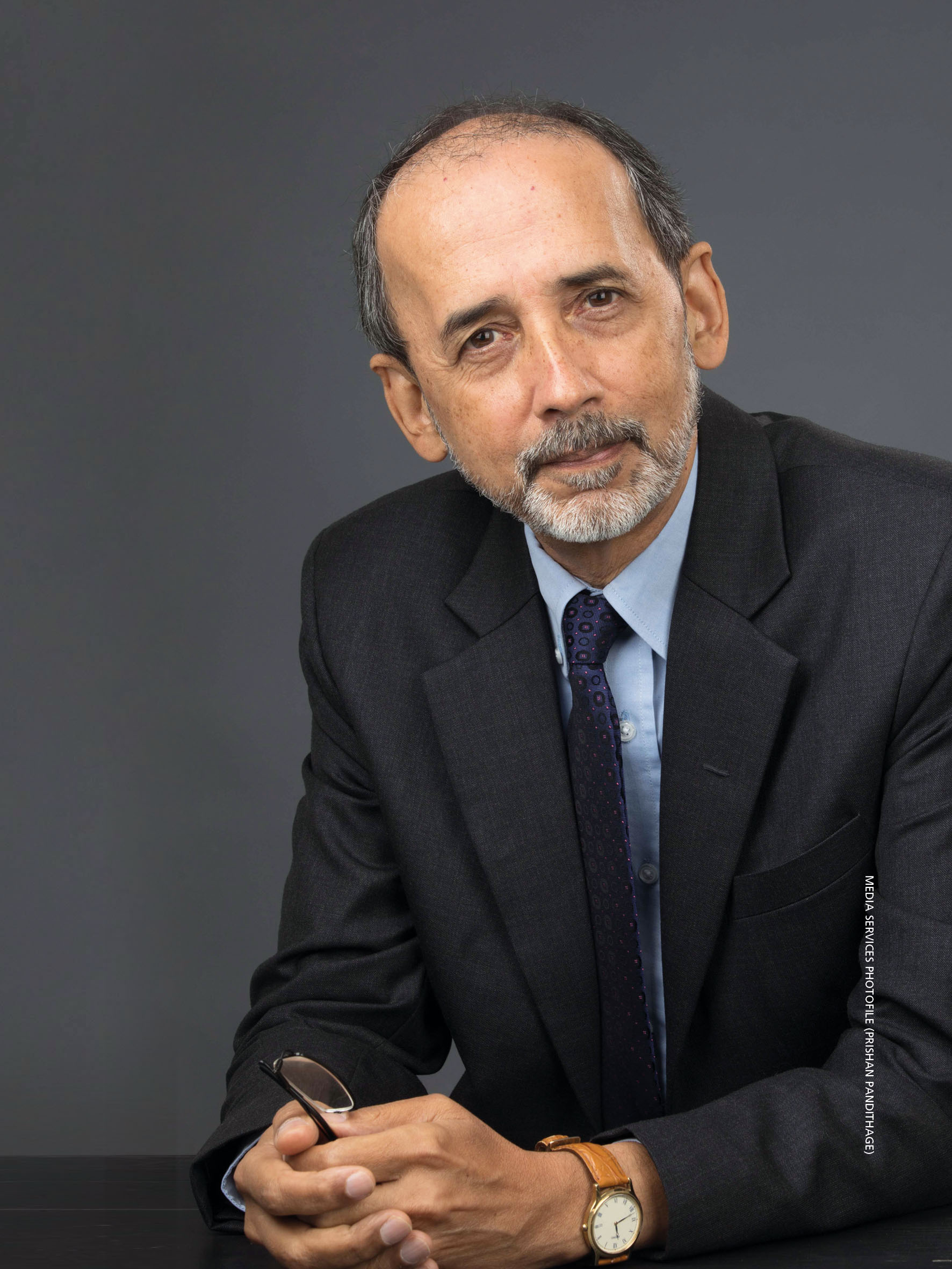REAL CHANGE
A NEW PARTY FOR REAL CHANGE
We have to channel this newfound energy into parliament – Rohan Pethiyagoda

Q: Can people power bring about real change, in your opinion?
A: If you look at the Arab Spring of 2010/11, it would seem that people power often doesn’t end well. It certainly didn’t in Egypt, Libya, Syria and Yemen: those countries ended up worse off than before.
The problem with popular revolts, especially when they’re not politically organised, is that an unintended third party becomes the beneficiary. Another weakness of popular revolts is that the various participants wish for different outcomes.
Some uniformity in messaging is necessary – it avoids anarchy. But I understand why the GotaGoGama protesters aren’t electing a leadership: that would present the government with too tempting a target.
I have no doubt that people power will succeed in forcing the president out of office; but because the protests are (thankfully!) peaceful, it may take longer than they wish. And I think the whole country has come to the conclusion that the president has to go.
So yes, people power can instigate real change.
But for enduring change, it must organise politically – even if this is through a new party. We have to channel this energy into parliament.
While all that is well and good, we need to keep in mind that people power means demanding unconstitutional intervention: the premature resignation of a constitutionally elected president.
Such interventions can be used only rarely in extreme circumstances. I think most people accept that the present circumstances — agricultural collapse and national bankruptcy — are sufficiently extreme. But if interventions like this are resorted to every time people are disgruntled with a government, it will lead to anarchy.
Q: The call for zero tolerance of corruption – is this realistic?
A: This is difficult given the limitations of our police and the judiciary.
Remember that when the Commission to Investigate Allegations of Bribery or Corruption (CIABOC) was enacted unanimously by parliament in 1994, we had so much hope. But CIABOC has turned out to be a damp squib.
Similarly, there is too much political interference with the judiciary. Politicians should have no hand in the appointment, transfer and promotion of judges and police officers. The police and judiciary should be absolutely independent, subject of course to parliamentary as well as civil society oversight.
Additionally, justice in Sri Lanka is painfully slow. Judges should be incentivised to get on with it.
The freedom to openly criticise judicial decisions should be enshrined in law. Judges are public servants just like any others, and their actions must be subjected to public scrutiny. They should not be permitted to hide behind a veil of privilege.
Weak judges must be weeded out by their peers. Contempt of court should be restricted to cases of noncompliance with judicial orders – and cases of contempt should be tried by a court other than the one injured by the alleged contempt, and always subject to judicial review.
Contempt is not the same as lèse-majesté. If you are wondering what this is, good; because it is a completely outdated concept that has no place in a liberal democracy. Neither does ‘contempt of court’ as we know it today.
I also feel that corruption is one area of law in which the presumption of innocence should not prevail. If I have unaccountable assets, the onus to prove that they belong to me should be mine, not the state’s.
Finally, given the high degree of alleged corruption in the police, we need a strong and independent internal affairs division of the police – again with civilian oversight.
Q: So where do we go from here?
A: There are no quick fixes for Sri Lanka’s predicament. Only patience, perseverance, hard work and lots of good luck will get us out of this mess even in a generation. The road to recovery will be slow and painful.



